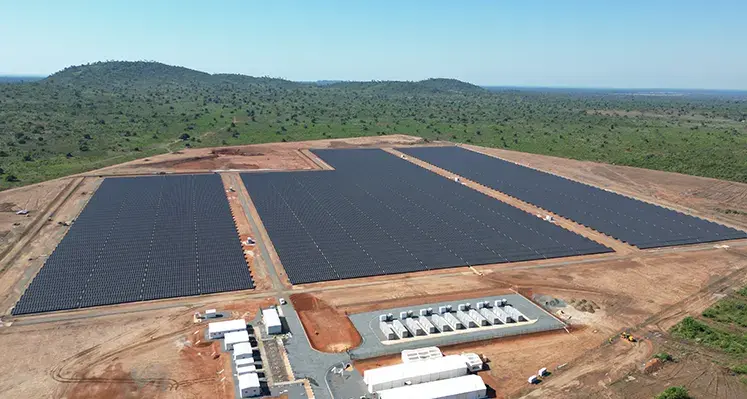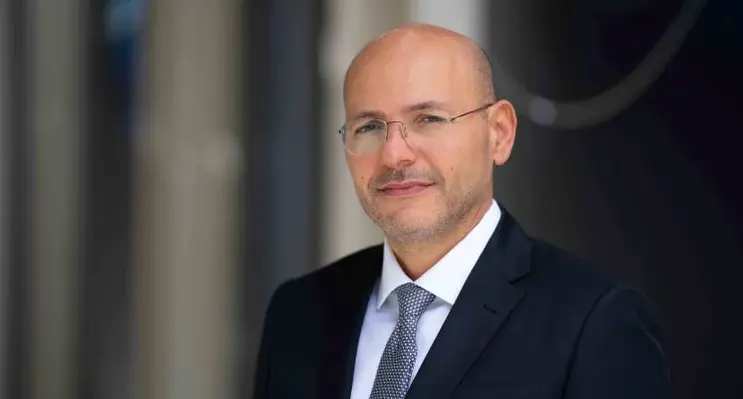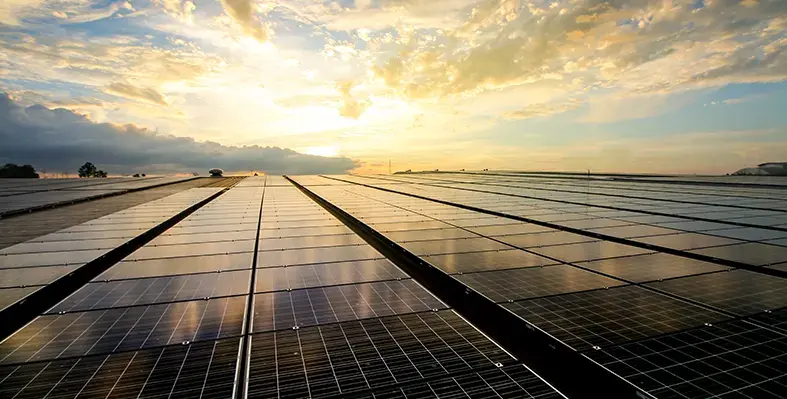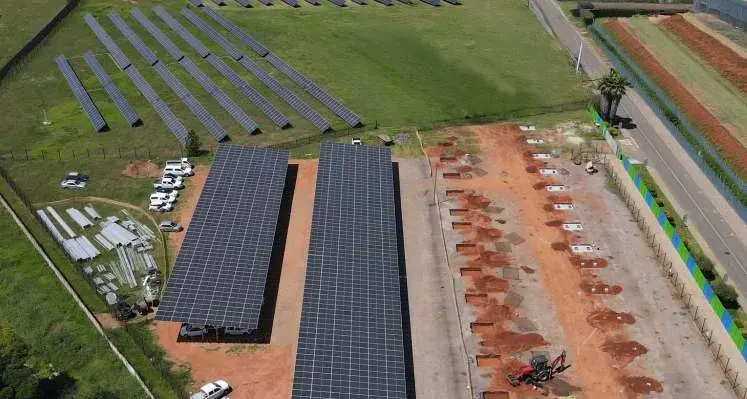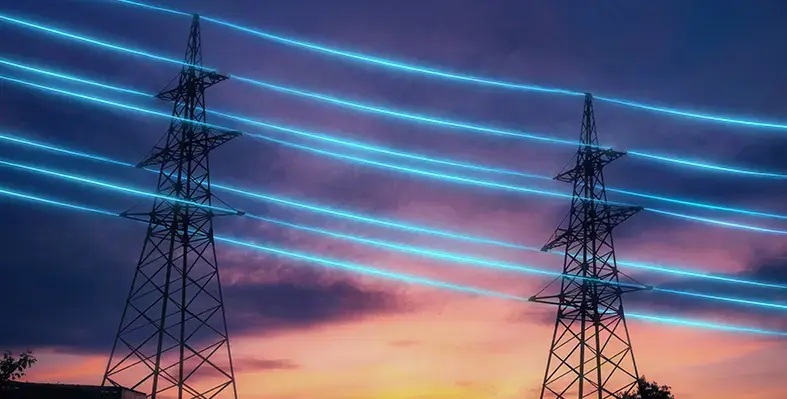Portuguese group MCA has just energised Africa's largest off-grid renewable energy photovoltaic (PV) park in Angola
The site will supply green energy to more than 136,000 people, with a production capacity of 25.40 MWp and batteries with a storage capacity of 75.26 MWh.
It is the country’s first autonomous, off-grid system with a solar source and battery bank for night-time supply – meaning that no fossil fuels will be consumed.
The inauguration was attended by Angola’s Minister of Energy and Water (MINEA), João Baptista Borges.
Manuel Couto Alves, chairman of the MCA Group, said that “the delivery of this first park, with cutting-edge technology and operating models adjusted to the evolution of local demand, represents our ability to adapt and our flexibility in responding to specific contexts.”
The project, with more than 40,000 solar panels installed, generated 300 jobs and enable annual savings of around 10 million litres of fuel, avoiding the emission of 37 tonnes of CO2 using renewable energy.
“For us, this project represents not only a technical challenge overcome with excellence,” added Alves, “but also a significant transformation in the quality of life of the communities involved. It is with a sense of accomplishment that I see people's homes lit by green energy.”
The financing for the project was structured by the UK’s Standard Chartered Bank with the support of German Export Agency, Euler Hermes, which granted a guarantee of around €1bn reinsured by Cosec and K Sure, the Portuguese and Korean export credit agencies (ECA).
The public electricity production company, PRODEL Ep, is the promoting entity.
The Angolan municipality of Cazombo, with a population of around 411,074 inhabitants, is the capital of the province of Moxico Leste.
The commissioning of the new park represents the first major source of electricity production and distribution in the region.
The Cazombo photovoltaic park forms part of a broader Rural Electrification Project in Angola that began in 2023 and is expected to be completed in 2026.
As well as MCA Group, it involves the Angolan government through the Ministry of Energy and Water and the Ministry of Finance, as well as a consortium of banks represented by Commerzbank AG as agent, and the German ECA, Euler Hermes.
As part of this project, MCA will also build 46 isolated solar mini grids to benefit more than one million people in 60 communes in the interior of the country, located in the provinces of Malanje, Bié, Lunda-Norte, Lunda-Sul and Moxico.
Photovoltaic power of 256MWp and 595 battery storage will be generated, and more than 200,000 household connections will be made.
Read more:
OCP Green Energy commissions Morocco's largest solar project
Mitrelli Group completes Angola's Quibala substation
Africa construction market drives Mota-Engil growth








